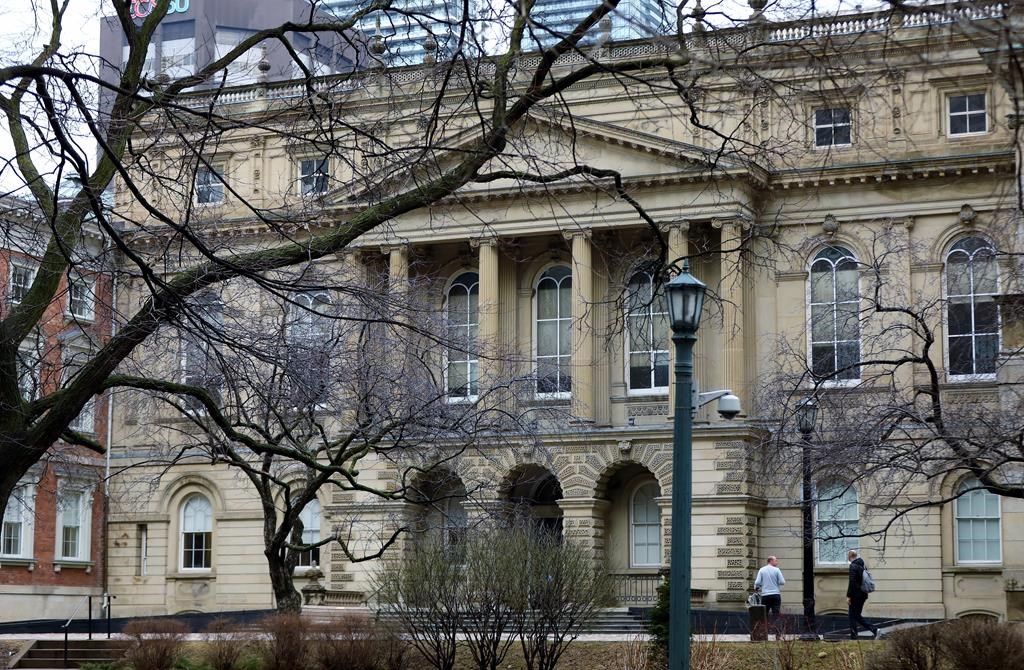TORONTO – Scores of criminal cases heard in Ontario in recent months could require new trials after the province’s highest court ruled Thursday that recent changes to the jury selection process had been improperly applied.

The Court of Appeal for Ontario unanimously upheld the constitutionality of sweeping legal reforms brought in through Bill C-75, which took effect on Sept. 19. These changes include eliminating “peremptory challenges,” a mechanism that allowed lawyers for either side to dismiss a certain number of prospective jurors without explanation.
But the three-judge appeal panel said anyone who chose to be tried by a jury before the new rules kicked in is entitled to proceed with peremptory challenges, even if the trial itself begins after that date.
“For the purposes of determining the temporal scope of the legislation, this loss of one aspect of the accused’s right to participate in the selection of the jury affects in a negative way the accused’s right to trial by jury as it existed before the amendment,” the panel said in its ruling.
“Therefore, the amendment is presumptively prospective. Nothing in the language of the amendment or in the material placed before this court rebuts that presumption.”

Get breaking National news
The court said, however, that another new rule tasking judges with making the final decision regarding the impartiality of prospective jurors should be applied to all new and pending trials, because that change is purely procedural.
The federal Liberal government modified the jury selection process following the controversial acquittal of Gerald Stanley, who was charged with second-degree murder in the killing of Colten Boushie, a 22-year-old Indigenous man.
The jury weighing Stanley’s fate had no Indigenous members, and the federal goverment said the changes in Bill C-75 aimed to make juries more representative.
The new rules were challenged by Pardeep Singh Chouhan, whose first-degree murder trial had reached the jury selection phase on the same day the changes laid out in the legislation came into force.
Chouhan’s lawyers had argued before his trial that scrapping peremptory challenges infringed on his constitutional right to be tried by an independent and impartial jury, and would in fact lead to less representative juries.
That argument was rejected by the presiding judge, who found that while those accused of a crime are entitled to be tried by a representative jury panel, they are not entitled to a jury that “reflects the proportionality of the population” or is composed of members of their same demographic group.
Ontario Superior Court Justice John McMahon also ruled the changes should be applied to every jury selected after they came into force, even for cases already in the system where the accused had opted for a jury trial.
The appeal court agreed that the new rules did not contravene constitutional rights but overruled the lower court on how to apply them.
Defence lawyer Daniel Brown, vice-president of the Criminal Lawyers’ Association, said the ruling will have significant repercussions. The association intervened in the case, siding with Chouhan.
“It is clear from this ruling that a failure to permit a jury to be selected under the old rules will result in a new trial and all those cases in the court system over the last 4 1/2 months are impacted by this decision,” he said.
Brown said it’s unfortunate the legislation didn’t provide more guidance on how it should be applied.
“It’s also a shame that the government didn’t … seek a reference to the court of appeal at the outset, meaning they could’ve had an answer to this question before they started doing new jury trials if they thought the law was unclear, instead of waiting for all the cases to be in the court system and have them potentially overturned.”
A spokeswoman for Ontario Attorney General Doug Downey said the Crown is reviewing the ruling, and would provide no further comment.







Comments